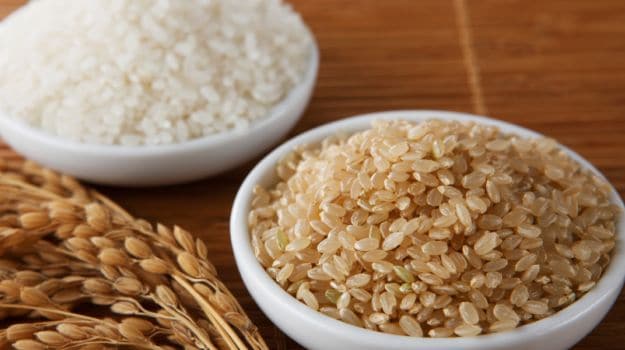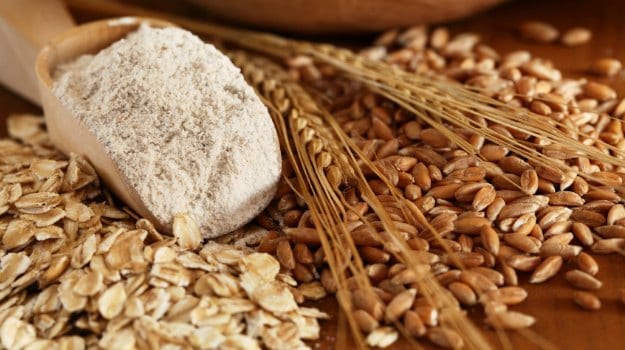Health experts have been going on about the benefits of including whole grains in our diet, and for good reason. Whole grains are loaded with fiber that keep us fuller for longer, aid in digestion, enhance metabolism, keep a check on blood sugar level, and maintain a healthy gut. So the craze about brown rice is not just a fad, it actually helps. Most of the nutrients in rice are contained in the outer layer known as bran, which is removed during processing in the case of white rice. That leaves you with nothing but empty calories. According to a study done by researchers at Tufts University in Massachusetts, swapping white rice with its brown alternative speeds up weight loss and is the equivalent of a 30-minute brisk walk!

Whole Grain Benefits
While it takes a little getting used to, including whole grains in your daily diet can help you in many ways than one. The study found that including more fibre can help you cut 100 calories each day. This difference is about the same amount that would be burnt off by a brisk half-an-hour walk, discovered experts.
Now we all know the benefits of brisk walking, and how even 30 minutes of it can help a great deal in staying healthy and keeping diseases at bay. Imagine if brown rice can help you achieve the same! For the study, researchers took two groups of people and fed them diets similar in total energy, total fat and the number of fruit, vegetable and protein servings. The only difference was in the source of grain. One group ate whole grains such as brown rice and whole wheat, while the other consumed white rice and refined white flour.

They found that the diet with more whole grains led to people developing a faster metabolism, burning more calories. They also absorbed fewer calories in their digestive systems. Apart from these benefits, there was a 'modest' improvement in their immune systems. Those on whole grains produced more T-cells, which deal with infections. Numbers of beneficial gut bacteria were also found to increase.
The study was conducted over eight weeks with 81 men and women aged between 40 and 65.
Dr Phil Karl, who led the study, said, "Many previous studies have suggested benefits of whole grains and dietary fiber on chronic disease risk. This study helps to quantify how whole grains and fibre work to benefit weight management, and lend credibility to previous reported associations between increased whole grains and fibre consumption, lower body weight and better health."
In the UK, the recommended amount of fibre to take in is 30 grams a day for an adult, although most people eat much less - an average of around 12 grams.







